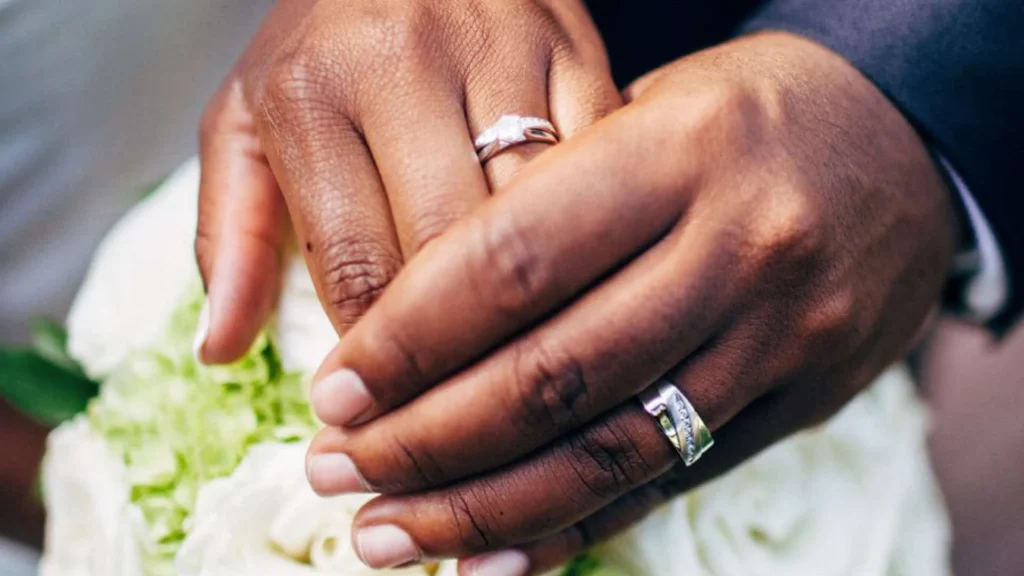Why Gen Z Nigerians are rejecting traditional marriage customs is a vital question that many individuals now ask, as a lot has changed course from what it used to be. In our contemporary world, wedding hashtags are all the rage every weekend, luxury event planners are reserved months ahead, and social media feeds are illuminated with pre-wedding photo sessions and declarations of love.
However, beneath this glitzy surface, a subtle transformation is taking place: numerous Gen Z Nigerians are reevaluating – or delaying – traditional marriage practices that were once seen as essential rites of passage.

This shift isn’t due to a single factor or a moral dilemma. Instead, it’s a multifaceted blend of economic realities, exposure to fresh ideas online, evolving gender roles, and a stronger desire for personal freedom.
When we refer to “traditional marriage customs,” we are talking about practices like negotiated bride prices and dowries, large community celebrations, mandatory attendance and gift-giving, arranged introductions, and in certain areas, marriages conducted under customary or religious guidelines that may permit forced or underage unions.
In contrast to their parents’ generation, who viewed marriage as an unalterable milestone, Gen Z – generally those born between 1997 and 2012 – are not only questioning the timing of marriage but also the reasons and methods behind it. They are confronting long-standing traditions that once shaped adulthood and family dynamics in Nigeria.
From soaring bride prices to societal expectations, religious influences, and the expenses associated with extravagant weddings, this emerging generation is boldly asserting, “No, thank you – we’ll chart our own course.”
Is marriage on the decline?
Younger Nigerians are increasingly postponing marriage compared to previous generations. Various reports and local media indicate that urban Gen Z prioritizes education, stable income, and mental health over tying the knot before turning 30, unlike millennials. Economic challenges-such as housing costs, unstable employment, and soaring inflation-play a significant role in this postponement.

Gen Z often turns away from the financially burdensome and coercive aspects of tradition-like extravagant gift-giving, large wedding expectations, and arranged marriages.
Nevertheless, many still appreciate cultural practices that strengthen family ties, provided these traditions are consensual and tailored to the couple’s financial situation. In essence, it’s not a battle between tradition and modernity; it’s about selective preservation.
4 Reasons Why Gen Z is Rethinking Tradition
1. Financial considerations (since marriage can be costly)

As reported by The Wall Street Journal, weddings, dowries, and the societal pressure to host grand events come with hefty price tags. Many young Nigerians find the traditional marriage package financially burdensome.
Beyond the wedding itself, the expenses associated with starting a household (like rent, utilities, and raising children) compel many to delay marriage. This economic reasoning is one of the most evident factors.
2. Prioritizing education and career
An increasing number of young individuals-particularly women-are focusing on higher education and career advancement. For many, achieving personal growth and financial autonomy is a prerequisite for marriage, rather than the reverse. Research on youth aspirations highlights this trend in Nigeria and throughout Africa.
3. Influence of digital media and exposure to alternatives
Platforms like social media, YouTube, and podcasts provide young Nigerians with insights into global narratives: intentional singlehood, cohabitation, postponed parenthood, and critiques of patriarchal traditions. This exposure facilitates questioning practices such as obligatory bride prices or performative community responsibilities.
4. Activism and legal attention
Campaigns against child and forced marriage, along with government scrutiny of mass wedding events, have shifted the national dialogue: marriage ought to be a choice made at full legal age. This shift indirectly influences how young people perceive traditional customs.

Traditional Nigerian marriage systems – whether Igbo, Yoruba, Hausa, Tiv, or Efik – are deeply rooted in culture. They show family alliances, dowry payments, parental consent, and the continuity of social structures. Marriage was historically viewed as a bond between two families rather than just two individuals. But Gen Z, influenced by global exposure and the freedom of the digital age, now prioritize self-expression, equality, and personal choice.
In previous generations, the common question was, “When will you marry?”
Today, it has transformed into, “Do you even want to marry?”
Gen Z Nigerians are not outright rejecting love or partnership – they are pushing back against rigid customs that seem transactional or patriarchal. They prefer to date on their own terms, postpone marriage, or even forgo it entirely if it doesn’t fit their personal or financial aspirations.
“I don’t understand why I should pay a list that resembles a supermarket receipt just to demonstrate love,” a young man from Enugu expressed on X (formerly Twitter). “Marriage should center around connection, not culture-induced debt.
Is the Bride Price about Love or Financial Burden?
The tradition of bride price (or dowry) is one of the most fiercely debated topics among Gen Z Nigerians. While a significant number still honor its cultural importance – representing gratitude and respect towards the bride’s family – others view it as an antiquated custom that objectifies women.

Lists that demand everything from livestock to crates of beverages and cash amounting to hundreds of thousands have ignited viral discussions on social media.
In 2024, a TikTok video featuring a man lamenting about a ₦1.5 million traditional marriage list in Imo State garnered millions of views, with comments split between cultural pride and indignation.
Gen Z women are also voicing their opinions. Many argue that the process often diverts attention from emotional compatibility to financial means.
“My value isn’t determined by how much my fiancé can afford,” stated a content creator from Lagos. “If my father demands an outrageous bride price, that’s not love – that’s a transaction.”
For numerous young Nigerians already grappling with unemployment and escalating living expenses, traditional marriage lists seem more like a financial trap than a joyous occasion.
The Economic Reality
Nigeria’s economy exerts a quiet yet significant influence on Gen Z’s perspective regarding marriage. With inflation reaching unprecedented levels, skyrocketing rent, and diminishing job prospects, the rising cost of living has compelled many young individuals to reconsider the financial rationale behind marriage.
READ ALSO: 5 Secrets to Compatibility and Communication in Relationships
The era when couples could rely on extended family assistance or governmental stability is long gone. Today’s Gen Z is more inclined to engage in freelancing, remote work, or managing startups – rather than securing consistent salaries.
Moreover, the expenses associated with contemporary weddings, where societal expectations dictate a “talk of the town” affair complete with designer attire, opulent venues, and destination photo shoots, add to the pressure.
“A typical Nigerian wedding now resembles a music video,” quipped a Twitter user. “Yet, post-wedding, many couples transition from honeymoon bliss to financial struggles.”
Consequently, numerous young people are choosing to delay or simplify their weddings, favoring court or civil ceremonies over elaborate traditional celebrations.
Perhaps the most significant transformation is in how Gen Z views gender roles and power dynamics within relationships.
Traditional Nigerian marriages frequently reinforce male supremacy – with men cast as providers and women as caretakers. However, Gen Z women, nurtured in an age of feminism, entrepreneurship, and social media autonomy, are redefining these narratives.
They seek partnership rather than patriarchy. They aspire to contribute, make decisions, and build a future together. As a result, an increasing number of Nigerian women are vocal about establishing their own expectations:
- Refusing marriages that demand unquestioned “submission.”
- Choosing not to leave their jobs or relocate solely for the sake of marriage.
- Advocating for shared financial duties and emotional openness.
In the words of a well-known influencer:
“My grandmother endured; my mother adapted; I’m opting for peace.”
This generational shift indicates a profound cultural transformation. Many Gen Z couples prefer to remain unmarried yet fulfilled rather than married and constrained.
The Influence of Social Media
Social media has transformed into a stage for cultural discussions. Platforms such as TikTok, Instagram, and X (previously known as Twitter) serve as the arenas where Gen Z Nigerians navigate the lines between tradition and modernity.

Through trending skits, podcasts, and bold opinions, they highlight the contradictions and double standards ingrained in conventional expectations.
For example:
- Videos that poke fun at the “bride price list” tradition frequently go viral.
- Hashtags like #ModernLoveNaija and #NoPressureMarriage promote non-traditional relationships.
- Podcasts showcase young Nigerians engaging in conversations about polyamory, cohabitation, and financial equality – topics that were once considered taboo.
However, social media also amplifies pressure. The fixation on wedding aesthetics and “relationship goals” can lead young individuals to overspend or create a facade of perfection.
Nevertheless, these platforms provide Gen Z with a voice that their parents lacked – a forum to question, confront, and publicly redefine the concept of marriage.
The Spiritual Angle

Religion continues to play a pivotal role in Nigerian identity, yet Gen Z engages with faith in a manner distinct from their predecessors. While older generations typically embraced religious doctrines without question, younger Nigerians are increasingly interpreting spirituality based on personal beliefs rather than societal pressure.
For many, the notion that one must marry young to achieve “God’s purpose” is losing its influence. They place greater importance on purpose, career, and mental well-being over the timing of marriage.
Some even completely dismiss denominational constraints, opting for interfaith or secular relationships. This adaptability often conflicts with family expectations – particularly in devout households – but signifies a movement away from religious conformity towards genuine self-expression.
“My faith encourages me to love,” remarked a 27-year-old tech professional from Abuja, “not to rush into marriage simply because the church demands it.”
The Crossroads
Gen Z Nigerians are true digital natives. They engage with content from all corners of the globe – from captivating Korean dramas to insightful American podcasts and trendy European lifestyle influencers. This diverse exposure has significantly expanded their views on relationships and the concept of freedom.

They witness couples living together before tying the knot, women taking the initiative to propose to men, and relationships founded on equality instead of traditional hierarchies. Such notions stand in stark contrast to Nigeria’s more conservative values.
Additionally, with the rise in migration and opportunities to study abroad, young Nigerians are now merging local customs with international viewpoints.
This fusion is evident when you spot a bride donning aso-oke paired with sneakers or a groom pledging his vows at a sleek civil ceremony – a beautiful mix of African heritage and contemporary self-expression.
In contrast to older generations who often married young – sometimes due to family or societal expectations – Gen Z Nigerians are prioritizing self-discovery before committing to marriage.
They place a high value on therapy, emotional intelligence, and open communication. For them, marriage represents a partnership between two emotionally mature individuals, rather than a hasty solution to loneliness or a means of gaining societal approval.
This shift is reflected in the rising popularity of therapy-focused podcasts and relationship coaches among the youth in Nigeria. Mental health, once considered a taboo topic, has now become an integral part of discussions surrounding modern love.
The Concept of a “Soft Life” and Personal Fulfillment
One of the key philosophies embraced by Gen Z Nigerians is the culture of “soft life” – a quest for tranquility, comfort, and personal satisfaction.

This generation does not romanticize hardship, whether in their careers or personal relationships. They have observed their parents endure unfulfilling marriages “for the sake of the children” or “for cultural reasons” and have chosen a different path.
A viral TikTok caption encapsulates this attitude: “I’d prefer to be single and stable rather than married and unhappy.”
For Gen Z, love is meant to uplift, not drain. If traditional marriage practices hinder their peace, they are willing to walk away – guilt-free.
This transformation does not necessarily indicate the demise of marriage in Nigeria – rather, it marks its progression. Gen Z is not dismissing commitment; they are reshaping it. They seek intimacy, loyalty, and companionship, while also insisting on equality, consent, and freedom. Future marriages in Nigeria are likely to be:
- More intimate, private, and budget-friendly.
- Emotionally equitable, with shared duties.
- Adaptable in tradition – honoring cultural heritage while maintaining individuality.
Ultimately, love will be evaluated not by the number of attendees or the bride price, but by the mutual respect and tranquility it fosters. Each generation questions its predecessor, and Gen Z Nigerians are merely carrying on that legacy.
They don’t reject culture – they’re reshaping it for a contemporary, interconnected, and self-aware time. Through this process, they’re showing society that genuine love embraces change; it grows alongside it.
And maybe that’s the true essence of progress – not discarding tradition, but selecting the elements that support rather than constrain.



[…] Why Gen Z Nigerians Are Rejecting Traditional Marriage Customs […]